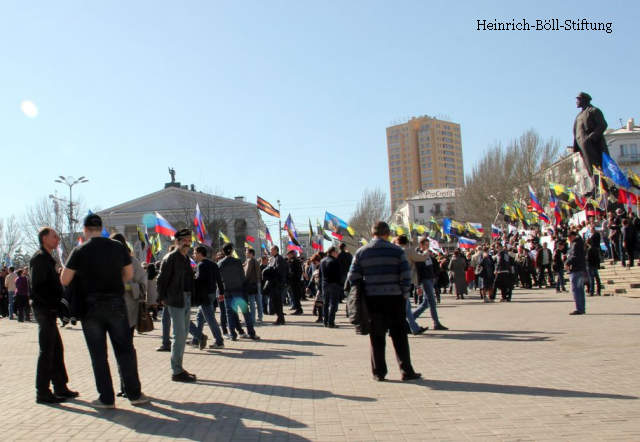The latest developments in Ukraine
Separated from Romania by a border that stretches hundreds of kilometers, along which a Romanian ethnic minority numbering almost half a million people is clustered, Ukraine is perceived by Bucharest as one of its most important neighbors in terms of territory, demography and geopolitics. Russia’s annexation of the Crimean peninsula, in March, and last month’s outburst of a secessionist uprising in the pro-Russian and Russian-speaking regions in eastern and southern Ukraine, have been firmly, unanimously and repeatedly condemned by the entire Romanian political class.

Bogdan Matei, 05.05.2014, 13:42
Separated from Romania by a border that stretches hundreds of kilometers, along which a Romanian ethnic minority numbering almost half a million people is clustered, Ukraine is perceived by Bucharest as one of its most important neighbors in terms of territory, demography and geopolitics. Russia’s annexation of the Crimean peninsula, in March, and last month’s outburst of a secessionist uprising in the pro-Russian and Russian-speaking regions in eastern and southern Ukraine, have been firmly, unanimously and repeatedly condemned by the entire Romanian political class.
On Sunday, Romania’s President Traian Basescu reiterated his country’s unreserved support for the territorial integrity of the neighboring state, which is threatened by the prospect of civil war, especially after Friday’s carnage in the Black Sea port-city of Odessa, close to the border with Romania.
Traian Basescu: “Events in Odessa are getting dangerous. They could spawn a full-scale civil war, not only the beginning of one. There is no risk for Romania to become involved in a war, but the country can be highly affected by the instability generated by a civil war in Ukraine. This instability will mirror in the way in which Romania will take out loans from foreign markets.”
In turn, Prime Minister Victor Ponta has announced that the Government is closely monitoring the situation in Ukraine and has asked Romania’s Supreme Defense Council to convene in a special meeting.
Victor Ponta: “Romania is not under any direct threat, but we have the obligation to be extremely cautious and coordinated with all our allies. I believe this responsibility involves some constitutional structures and any talks about the security of Romania and of the region, about our joint strategy with our NATO and European allies can be discussed only within the Supreme Defense Council”.
Prime Minister Ponta has also said that Bucharest will further direct its actions towards assuring the integrity and security of the Republic of Moldova (a former Soviet state, with a predominantly Romanian-speaking population), which is also faced with pro-Russian separatist movements in the eastern region of Transdniester and in Gagauzia, in the south.
On the same note, the Romanian Foreign Ministry had previously disapproved the wave of violence in Odessa, had voiced solidarity with the Ukrainian people and expressed support for the country’s embarking on a European path and for the Kiev authorities, in their effort to stabilize the situation. The ministry has also announced that it constantly monitors the situation of the Romanian ethnic minority in the region, through Romania’s General Consulate in Odessa.






























